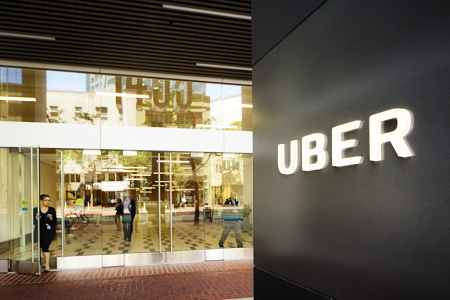Uber recently announced it would launch an advanced booking feature for its Uber for Business and Business Profiles users in Seattle, causing a stir in the industry.

The announcement came on the heels of a Lyft announcement that San Francisco users could schedule rides up to 24 hours in advance. Uber, however, insists the advanced booking that will allow riders to schedule rides as far as 30 days in advance has been in the works for some time.
According to Uber, here’s how the new service will work:
- Nothing will change for drivers. Riders and drivers are not being matched ahead of time. When riders sign up for a 15-minute slot, that ride won't pop up for drivers until the time arrives. So to drivers, it will look like just another ride.
- Riders can book as little as 30 minutes in advance. While 30-day advance booking is an option, users can also use the feature closer to the time they want the car to come.
- Surge pricing still applies. Even if you schedule a ride a month ahead, if there happens to be surge pricing when your scheduled slot comes up, you'll be responsible for the higher fare.
- No third-party booking. Uber declined to comment on whether third-party booking might be incorporated into the feature in the future, allowing colleagues to schedule rides for each other.
"Scheduled Rides is a top-requested feature from our riders, especially for times like early morning trips to the airport," Uber said in a statement.
Though being piloted in Seattle, the company plans to roll out advanced booking in “top business travel cities.”
The move to scheduled bookings represents a significant shift in the ride-hail company's operations as Uber looks to broaden its customer base to a more business-minded clientele.
Booking a car ahead of time has typically been the exclusive realm of for-hire vehicle services like black car and limo companies. Previously, Uber and Lyft, which place a huge premium on efficiency, have said such features are unnecessary when a car can be summoned to your front door in about five minutes.
With both companies now testing advanced booking features, it now appears the ride-hail leaders are trying to break into the B2B market where companies have traditionally used black car and limo services to shuttle their employees and clients around.
Earlier this year, Uber said it would integrate with expensing services like Concur, Expensify, Certify, and Chrome River to automatically send trip receipts to an employee's expense provider. Moreover, the service will only be available to business travelers to start. "We expect to make the feature broadly available to all riders as we continue the rollout," according to Uber.
The company is adjusting on other fronts as well.
Uber says it’s showing more passengers the cost of a ride upfront, even during times of so-called “surge pricing,” when rides get more expensive amid heightened demand.
The company has previously offered upfront pricing for its carpool-style “UberPOOL” service. But it’s now rolling out the feature to UberX, its taxicab-like offering, to more users.
“Knowing how much a ride will cost in advance is clearly something riders appreciate: today uberPOOL accounts for over 20 percent of all rides globally,” according to an Uber blog post. “And we now want more riders globally to benefit from this feature.”
It should be noted that UberPOOL, in which riders share the car with others, is also cheaper than uberX.
The change may make it more difficult for Uber riders to tell if surge pricing is in effect. Instead of a screen showing a surge price multiplier, users will be notified about surge pricing via a message under their fare.
